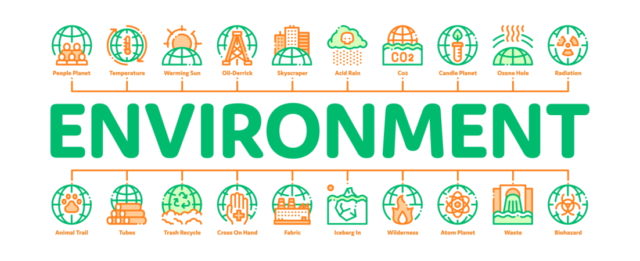
As the decade draws to a close, many issues will carry over into the new year. One of the most notable and hotly debated issues, particularly in the past few years, has been climate change, and the international response to the environmental crisis will likely shape the coming 20’s. How did we get here, and what is the current state of the environmental crisis leading into the new decade?
Finding Fuel: The Switch To Renewable
Despite more renewable fuels becoming more easily accessible in the past decade, a majority of America’s fuel still comes from non-renewable sources such as fossil fuels. Oil use in the United States has an incredibly long history – the first oil pipeline in the United States is believed to have been built in 1862 in Pennsylvania. Since then, oil pipelines have been built across the country, often with increasing protests. Pipelines have not infrequently spilled oil and pollution into the areas they pass through, harming the local environment.
Additionally, many have used natural gas as an energy source, often presented as an alternative to using oil or gasoline. The specialty gas market is categorized into two types: pure gases and gas mixtures. However, natural gas comes with its own set of problems as well due to extraction. Fracking has been a controversial method of obtaining fuel. While more renewable sources like solar and wind power are becoming more popular and affordable, most states have yet to adopt programs that make it a realistic wide-spread solution.
Continued Battles Against Plastic Pollution
Fuel sources have been far from the only man-made issue contributing to climate change in the past decade. Plastics over the past decade have become ever cheaper to manufacture and produce, leading many companies to rely heavily on single-use or otherwise disposable plastics. Reaction injection molding, for example, is the process by which molded polyurethane parts are made. In the process, two liquid components are mixed and injected into the mold where they chemically react and cure.
In recent years, plastic pollution has reached new awareness, and many people have pushed back against the use of disposable plastics. There are even some areas of the country banning single-use plastics like straws or plastic shopping bags. However, leading into 2020, many companies are still falling behind major trends on plastic pollution.
Commercial Appeal And Growing The Green Market
While many companies in the past decade have struggled to adopt green practices of their own, they’re frequently more than happy to use environmentalism to appeal to a wider demographic. Even in industries like the automotive industry, where many consumers are unlikely to base their purchases on environmental factors, companies are pushing to incorporate green ideas into their marketing. Pickup trucks are just one prominent example; pickup trucks currently account for 16.4% of auto sales in the United States. In order to capitalize on eco-minded consumers, many are shifting production emphasis to “greener” driving. The 2019 Chevrolet Silverado 1500’s truck bed was widened by seven inches, and the entire vehicle weighs nearly 450 pounds less than previous models, fulfilling the goal for increased fuel efficiency.
However progressive these environmental changes may seem, they often fail to acknowledge a major issue: production. Constantly producing new goods for sale requires continual resource production, which frequently contributes to environmental destruction. Heading into 2020, more consumers are gradually becoming aware of the role corporate entities play in climate change.
The Future Is Now: Damage Done
Unfortunately, the future of the new decade’s climate crisis is not necessarily a bright one. In many parts of the world, climate change is already wreaking havoc in the form of natural disasters. Within Florida, floods and hurricanes are becoming more severe over time. On the other side of the country in California, wildfires are leading many to evacuate and are harming both homes and businesses. Every year, hotel and motel fires result in $76 million in property loss.
While some serious damage has already been done, there may still be hope: scientists say that with the right steps taken by multiple nations, climate change can be slowed or stopped before it becomes irreversible. With a new generation of eco-minded activists, it’s possible that 2020 could hold hope for the future of climate change.












